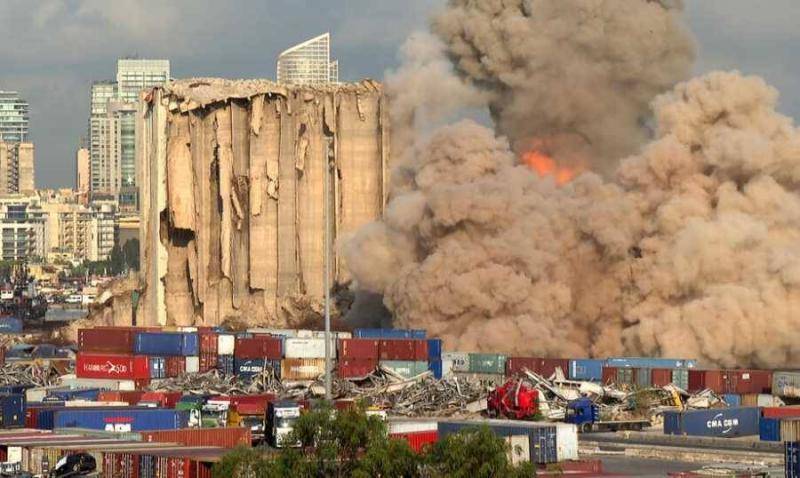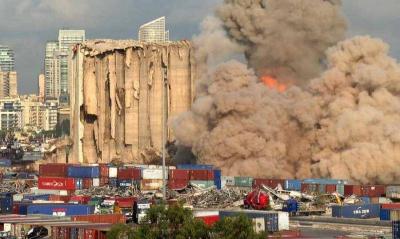While the files of military developments resulting from the "Flood of Al-Aqsa" operation and its Lebanese repercussions, as well as the vacancy in the presidency, dominate the Lebanese political scene and international diplomatic attention—given that all issues are interlinked—it seems the file of the Beirut port explosion has been placed on a low simmer in the corridors of international decision-making capitals. These capitals allowed it to be "snoozed" for nearly two years, while the investigating judge "was quietly doing his work," reviewing his documents and files, according to "Al-Diyar."
The impetus for this discussion stems from information and reports that reached decision-makers in Beirut, regarding the intent of the relevant parties abroad to reactivate the file with the departure of the Public Prosecutor from his position due to retirement. This opens a significant gap in the wall of the ongoing crisis and the subsequent paralysis of Judge Tarek Bitar’s work, which forced him into a forced leave after the defendants inundated the investigation with requests for recusal and suspension that reached a record number, a precedent in the Lebanese judiciary.
The story dates back several weeks, when a French intelligence envoy visited Beirut. During a meeting with one of the figures, he posed a question about Judge Tarek Bitar that seemed out of context: "What is he doing these days?" According to a source familiar with the situation, the inquiry stemmed from information received by French intelligence indicating that a detention order against Minister Fanyanos had been secretly dropped.
The source reveals to "Al-Diyar" that the concerned leadership in Beirut was seriously informed of the existence of an international decision to reactivate the investigation into the Beirut port explosion file, and to proceed with the accountability of those responsible, particularly after the ruling political class colluded with some within the judiciary in a bazaar of obstruction deals.
The source continues that the first steps involve nullifying the state's disqualification lawsuit through the consideration of the relevant judicial panel and issuing its decision, coinciding with the retirement of the Public Prosecutor at the end of this month. This will allow the investigative judge to resume his investigations, with his first step being the issuance of arrest warrants for all those summoned for investigation and prosecution.
An essential question arises concerning the reaction of the acting public prosecutor and the decisions he will make. In this context, the source confirms that the public prosecution will not invalidate those decisions nor will it present them for contestation, placing political forces before a significant dilemma, alongside the issued warrants that may exceed 30, including former ministers and administrative security officials, under full international cover, preparing to take international measures against those obstructing this time against the impediments to the course of justice.
The source concluded by stating that March will be very critical, as the country sits on a powder keg, which has led the parties involved to manage their movements to find the least costly exits. Sources are concerned that Judge Bitar’s legal decisions could trigger an explosion in the country and create a crisis that has a known beginning but an unknown end or repercussions. Despite this, informed circles acknowledge that the path to justice will continue, and none of the internal forces will be able to obstruct it.




